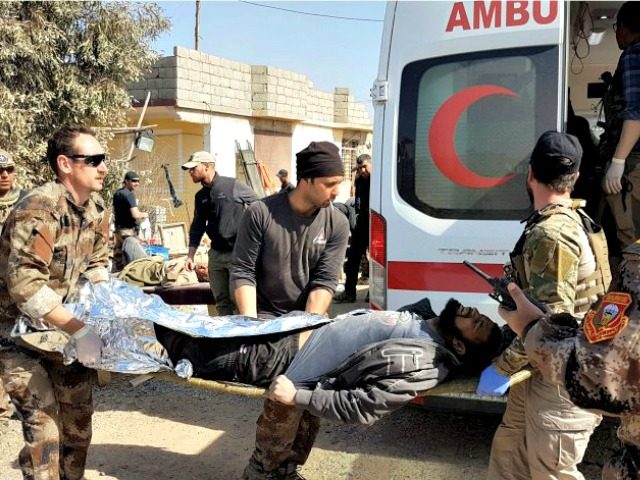WASHINGTON, D.C. – The U.S. commander of the military coalition fighting the Islamic State in Iraq and Syria (ISIS) expressed frustration on Tuesday over journalists’ repeated questions about airstrikes that may have caused civilian casualties versus ISIS’s responsibility in their deaths.
“It’s disappointing to me that all the questions were about our airstrikes, and our process, our decisions, and it almost seems to me that it was completely lost on everybody – and I hope it’s not lost in your reporting – what I said [regarding] who was killing innocents in Iraq and Syria,” said Army Lt. Gen. Stephen Townsend at a Pentagon press briefing.
Townsend briefed reporters on the ongoing fight, as well as recent reports that coalition airstrikes on March 17 in West Mosul may have caused a building collapse, leading to the deaths of more than a hundred civilians.
The coalition is investigating whether it caused those deaths. The three-star general said it’s “possible” that the airstrikes caused them.
“It is possible that we did that,” he said. “Because we struck in that area, I think there’s a fair chance that we did it.”
He also said civilian casualties were “unfortunate,” but not a war crime and said ISIS may have gathered the civilians in the building. “It looks like they did,” he said.
“If these innocents were killed by the coalition, it was an unintentional accident of war. And ISIS is slaughtering Iraqis and Syrians on a daily basis. ISIS is cutting off heads. ISIS is shooting people, throwing people from buildings, burning them alive in cages, and they’re making a video record to prove it,” he said.
“This has got to stop,” he added. “This evil has got to be stamped out. And in my mind, all responsibility for any civilian deaths – the moral responsibility for civilian deaths in Iraq and Syria — belongs to ISIS.”
The U.S. has been flying missions against ISIS in Iraq and Syria since Fall 2014, in addition to supporting local Iraqi and Syrian forces on the ground to defeat ISIS.
The coalition is now focused on retaking ISIS’s stronghold of Mosul, the country’s second-largest city. Iraqi forces have succeeded in pushing ISIS out of Eastern Mosul, but the terrorist group is now holed up in Western Mosul, where the fight has proved more difficult.
Townsend said Iraqi forces started in the east, since it was more open and modern, as opposed to Western Mosul, which has older architecture that is harder for forces to maneuver around.
“That’s why we saw fewer civilian casualties [in the east],” Townsend said.
He called the battle for Western Mosul the “toughest and most brutal phase” of the war in Iraq so far.

COMMENTS
Please let us know if you're having issues with commenting.